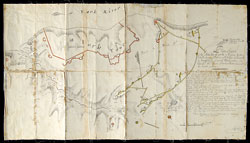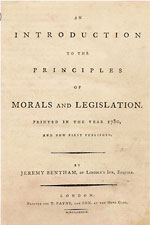Maps and Memoirs
From Yorktown to Bourges, via 10 Downing Street
Was this Washington’s Yorktown Map?
Manuscript Plan of the Battle of Yorktown, James D. Julia of Fairfield on February 4-5, $1,150,000
What was to become the most expensive American map ever sold at auction was entered for sale without reserve and initially given a wide-open estimate of just $5,000 to $50,000 in this Maine sale.
Showing the disposition of the besieged British troops and the combined American and French forces at Yorktown, it was executed on or around October 29, 1781, ten days after the final, unconditional surrender by the British commander, Lord Cornwallis, to George Washington. The drawing up of the map was overseen if not directly accomplished by Lieutenant Colonel Jean Baptiste Gouvion, who in 1777 had been one of a group of French military engineers transferred to the American forces following a direct request from the Continental Congress. He was present at that critical battle.
A larger version of the map exists in the National Archives, but there is now speculation that its map may have been one drawn up for the Continental Congress and that the smaller and much better preserved example offered in New England may have been Washington’s own. And if not Washington’s own, at least that of his aide-de-camp, Tobias Lear, who handled a lot of his commander’s papers and through whose family it had passed down.
Bidding opened at a paltry $25,000 but after an initial flurry of bids, developed into a competition between one gentleman at the back of the room, cell phone in hand, and another bidding via one the saleroom’s own telephone bidding operators. It was the latter, described by Julia as “a private individual with close ties to a museum,” who made the record-breaking, winning bid.
Always present, but rarely available
Jeremy Bentham, An Introduction to the Principles of Morals and Legislation, Lawrences of Crewkerne on January 17, £30,000 ($49,200)
Until comparatively recently, minutes of the governing body of University College, London, would mark philosopher Jeremy Bentham down as “present but not voting.” This was a reference to the fact that the embalmed body of one of the college’s founders, dressed in his usual clothes and with only his head replaced by a wax likeness, sits to this day in a glass case in the college’s entrance hall.
Bentham (1748-1832) had himself been educated at Oxford, but freethinkers of his kind were debarred from the great universities, so in 1826 he and others founded the first new university in England since medieval times. Bentham had become increasingly radical as he grew older and headed a group known as the Philosophical Radicals, whose aims included liberal reform of prisons, censorship, education, changes in laws concerning sexual activity, and corruption in public institutions.
Throughout his life Bentham wrote a great deal on ethical, political, and legal questions, though it was often left to his friends to ensure that his work was actually published—even if posthumously. This key work was certainly issued in his lifetime, though the first edition claims on the title page that it was printed in 1780, but only “now first published” in 1789. More significantly in terms of price, the first edition might as well, to mimic those UCL minutes, be marked down as present but not usually available.
A couple of copies were seen at auction in London in the 1980s, but since then—and for some time before that—nothing. In period half calf and marbled boards, the spine of this copy was defective, the corners were worn, and there was some browning to the inner margins and final leaves. An estimate of $1,500-3,000 set by these Somerset auctioneers—barely comparable with the prices paid at Sotheby’s over twenty years ago—was always going to be surpassed.








 Ian McKay’s weekly column in Antiques Trade Gazette has been running for more than 30 years.
Ian McKay’s weekly column in Antiques Trade Gazette has been running for more than 30 years.
